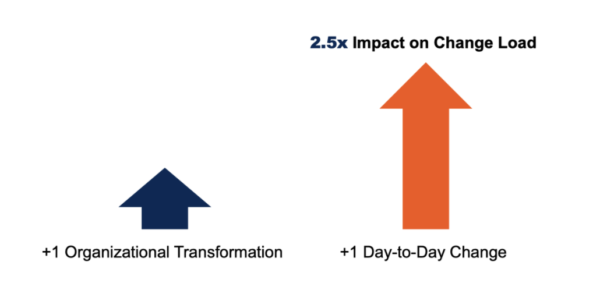
If you are interested in becoming a human resource manager, the first thing you need to do is to get an education in Human Resources. There are many certifications available to HR professionals. These include the Professional in Human Resources (PHR) and the Senior Professional in Human Resources (SPHR). You must have a bachelor's and two years experience in order to be a professional in human resources (PHR). To become a SPHR you must have at least four to five years' experience and a masters degree.
Job description
The HR Manager's primary responsibility involves overseeing the activities of the HR Department and providing leadership to the whole team. This role also involves building relationships with employees, building the employer brand, and implementing strategies to increase employee engagement. This role requires strong leadership and communication skills. It also requires experience in managing employees from a range of backgrounds.
The HR manager also has the responsibility of ensuring that the HR department stays current and that all departments are informed about the company's goals. They attend meetings and prepare periodic reports. They might also plan philanthropic initiatives for the company.
Education requirements
Applying for a job as a human resource manager requires that you have a higher education. Although a master's degree may not be required for a job, it will improve your career prospects as well as help you contribute to the field's knowledge. Business schools often offer programs in human resource management and business administration. To increase your opportunities for employment, you may also be eligible to earn certifications.

To become an HR manager, you must have at least a bachelor's degree or higher. You can either pursue a related degree, such as in business administration or marketing, OR you can go for an HR management degree. Whatever your choice, a degree in human resource management can lead to a fulfilling career.
Salary
Salary for HR managers can vary widely depending on the company and position. It is a good idea to explore different salary ranges to determine which job is right for you. If your company offers a lower salary than what you are expecting, it may be worth looking for another job. Moving jobs is generally more lucrative than staying at one place for too long. If you have a great performance record, you might consider asking for a raise. If your performance record is poor, you might consider moving to a different workplace.
Experience and education can have a large impact on the salary that you can earn as an HR manager. Human resource professionals typically need a bachelor's degree in a related field. You may be able transfer a master's in another field to a position in HR if you have it.
Certifications
There are many types of certifications for HR managers. Some of them are offered by professional bodies, such as SHRM. Others can be obtained as certificates, like the HRCI certification. These courses are meant to aid HR professionals with specialized knowledge. These certifications are a great way to get certified as an HR manager.
Some HR professionals may be overwhelmed by all their responsibilities and not have the time for additional education. Flexibility is essential when choosing a certification course. Attention to the available time and materials. It can be hard to stick to a strict schedule, which can lead to discouragement.

Work experience
For a career in Human Resources Management, you will need a bachelor's in business or human resources. For some jobs, a master’s degree may be required. It can either be obtained online or at traditional universities. Even if your experience is in another field, it may still be possible to acquire transferable skills for HR management. You can also pursue HR certifications through organizations like the International Foundation of Employee Benefit Plans, IFEBP, and the Society for Human Resource Management.
A rewarding career as an HR manager is possible. This requires a solid understanding of human resources and communication skills. The most successful HR managers can work in many industries and make high-paying jobs.
FAQ
What are the five management process?
Planning, execution, monitoring and review are the five stages of any business.
Setting goals for the future is part of planning. It involves setting goals and making plans.
Execution is when you actually execute the plans. These plans must be adhered to by everyone.
Monitoring is checking on progress towards achieving your objectives. Regular reviews should be done of your performance against targets or budgets.
Review events take place at each year's end. They allow for an assessment of whether all went well throughout the year. If not, changes may be made to improve the performance next time around.
After the annual review, evaluation takes place. It helps identify which aspects worked well and which didn't. It also provides feedback regarding how people performed.
What is Six Sigma?
Six Sigma uses statistical analysis for problems to be found, measured, analyzed root causes, corrected, and learned from.
The first step is to identify the problem.
Next, data is collected and analyzed to identify trends and patterns.
The problem is then rectified.
Finally, data is reanalyzed to determine whether the problem has been eliminated.
This cycle continues until there is a solution.
What are the most common errors made by managers?
Sometimes managers make their job harder than they need to.
They may not be able to delegate enough responsibility to staff or provide adequate support.
In addition, many managers lack the communication skills required to motivate and lead their teams.
Managers can set unrealistic expectations for their employees.
Managers might try to solve every problem by themselves rather than delegating the responsibility.
Statistics
- The profession is expected to grow 7% by 2028, a bit faster than the national average. (wgu.edu)
- This field is expected to grow about 7% by 2028, a bit faster than the national average for job growth. (wgu.edu)
- The BLS says that financial services jobs like banking are expected to grow 4% by 2030, about as fast as the national average. (wgu.edu)
- As of 2020, personal bankers or tellers make an average of $32,620 per year, according to the BLS. (wgu.edu)
- Hire the top business lawyers and save up to 60% on legal fees (upcounsel.com)
External Links
How To
How do I get my Six Sigma License?
Six Sigma can be used to improve quality and efficiency. It's a methodology that helps companies achieve consistent results from their operations. The name derives its meaning from the "sigmas" Greek word, which is composed of two letters that mean six. Motorola invented this process in 1986. Motorola realized that standardizing manufacturing processes was necessary to make products more efficient and less expensive. They had been having problems with consistency because of the many different people who were doing the work. They used statistical tools such as Pareto analysis, control charts, and Pareto analysis to resolve the problem. Then, they would apply these techniques in every area of the operation. They would then be able make improvements where needed. To get Six Sigma certified, there are three key steps. The first step is to find out if you're qualified. You will need classes to pass before you can begin taking tests. After you have passed the classes, you can start taking the exams. You'll want to study everything you learned during the class beforehand. You'll then be prepared to take the exam. If you pass, you'll get certified. Finally, you will be able add your certifications onto your resume.